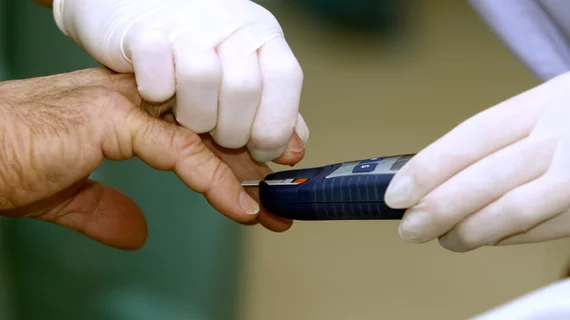Novel diabetes AI outperforms older algorithms, integrates with commercial EHR
A novel AI-based model for clinical decision support has bested established machine-learning models at predicting how patients with type-2 diabetes mellitus will respond to various categories of therapeutic drugs.
Further, the model’s developers achieved full interoperability between the CDS mechanism and the commercial EHR of a major academic health system, in the process rolling out a user-friendly interface.
In their research report, the team states their method may be applicable to any number of other chronic conditions, in the process bringing AI-driven CDS to the point of care.
The work was conducted by industry researchers with Hitachi Ltd. in Tokyo and academic colleagues at University of Utah Health in Salt Lake City. It’s described in a study published May 11 in Methods of Information in Medicine.
Senior author Kensaku Kawamoto, MD, PhD, of the university and colleagues trained and tested their innovative AI on records of around 28,000 patients with diabetes.
Calling the system Treatment Pathway Graph-based Estimation (TPGE), Kawamoto and co-authors show it outperforming machine-learning models like Gradient Boosting Tree and Random Forest on predictive accuracy.
Such ML approaches, they point out, “can lead to biased estimations in the context of predicting treatment outcomes” and “are able to learn only the patterns encountered in the training dataset,” compromising their clinical reliability.
Meanwhile, the authors write, their TPGE produced “enhanced predictive performance; predictions that are more aligned with clinical intuition on how treatment success should change with patients' baseline values; high coverage for treatment patterns encountered in actual clinical practice; and a systematic approach to identifying when there is insufficient data to provide an accurate prediction.”
The authors comment that they’re now seeking to use bigger datasets to enable drug vs. drug predictions and other clinically relevant decision aids.
The study’s first author is Shinji Tarumi of Hitachi.
The study is available in full for free.

